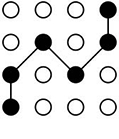
15
YEARS OF
PROPRIETARY
K&R DATA

73K+
GLOBAL
THREAT EVENTS
DATASET

100+
REPORTS AND
INFOGRAPHICS
PER YEAR

192
REAL-TIME
MONITORED
COUNTRIES

15
YEARS OF
PROPRIETARY
K&R DATA

73K+
GLOBAL
THREAT EVENTS
DATASET

100+
REPORTS AND
INFOGRAPHICS
PER YEAR

192
REAL-TIME
MONITORED
COUNTRIES

DECEMBER 26, 2025
SYRIA
An IED explosion occurred during Friday prayers inside the Imam Ali bin Abi Talib Mosque in the Alawite Wadi Al-Dahab neighborhood of the city of Homs. At least eight people were killed in the blast and at least eighteen were injured, according to state media and local officials. A Sunni jihadist group, Saraya Ansar al-Sunnah, claimed responsibility for the bombing in collaboration with another unidentified group, using pre-planned explosives at the site. Some observers have speculated that the group could be a front for the Islamic State (IS), given similarities in messaging and target selection. Syrian officials and regional governments condemned the incident as a terrorist crime aimed at destabilizing security and sowing chaos.
DECEMBER 14, 2025
AUSTRALIA
At around 18:47 local time, two armed men, later identified as a 50-year-old father and his 24-year-old son, opened fire on a large crowd attending the “Chanukah by the Sea” event, where hundreds of families had gathered to celebrate the first night of the Jewish holiday of Hanukkah near Campbell Parade at Bondi Beach in Sydney. The gunmen, reportedly of Pakistani descent, fired repeatedly from an elevated position above the crowd, triggering widespread panic as people ran for cover and sought shelter. The incident lasted about ten minutes before police engaged the suspects. Fifteen people, aged from 10 to 87, were killed, and at least 40 others were wounded, among them two police officers. Police shot dead Naveed Akram, and his son was taken into custody in critical condition. Authorities later discovered and removed suspected improvised explosive devices from a vehicle connected to the attackers, who resided in Bonnyrigg. A bystander was captured on video tackling and disarming one of the gunmen, an act that was widely hailed as heroic and may have saved lives. The incident has been classified as a terrorist attack motivated by antisemitism, marking one of the deadliest mass shootings in Australia’s history.
DECEMBER 14, 2025
GERMANY
Security forces thwarted an attempted vehicle ramming attack at a Christmas market in southern Bavaria near Dingolfing and arrested five suspects planning the assault. Authorities did not disclose the exact location of the targeted market. Among those detained were a 56-year-old Egyptian, a 37-year-old Syrian and three Moroccan men aged 22, 28 and 30. Bavarian Interior Minister Joachim Herrmann said that excellent cooperation among security agencies enabled the rapid arrests and prevented a potentially Islamist-motivated attack. German authorities have imposed stringent security measures on Christmas markets this year, driving up costs in some cities by up to five times. These heightened precautions follow a series of serious security incidents across Germany, including a 2024 December attack in Magdeburg in which a 50-year-old Saudi national drove a vehicle into a Christmas market, killing six people and injuring over 300 others.
DECEMBER 13, 2025
SYRIA
U.S. and Syrian military personnel came under fire while on a joint patrol near the central Syrian town of Palmyra by a suspected Islamic State militant. Two American soldiers and an American civilian, who served as an interpreter, were killed, and four were wounded. The wounded were airlifted by helicopter to the Al-Tant base near the borders with Iraq and Jordan. Some reports state that at least one Syrian soldier was killed and at least two were wounded. The lone attacker was later identified as a radicalized member of the Syrian security forces and was killed, but it remains unclear if the attacker was taking part in the joint patrol. This attack marks the first incident resulting in American casualties since the fall of Syrian President Bashar al-Assad and highlights the continued risks to coalition forces engaged in counter-IS operations in central Syria.
DECEMBER 09, 2025
PAKISTAN
Militants attacked a security checkpoint in the Kurram district of northwest Khyber Pakhtunkhwa province near the Afghan border, killing six soldiers. Though no group has claimed responsibility for the attack, Pakistani authorities said that Tehreek-e-Taliban Pakistan militants, also known as the Pakistani Taliban or TTP, operating from Afghanistan are behind the growing wave of attacks, an accusation denied by Afghanistan’s Taliban government. Despite efforts by both countries to uphold a ceasefire following heavy cross-border clashes in October-- the worst since the Taliban seized power in Kabul in 2021-- the attacks, as well as skirmishes between the two countries, continued in recent weeks, killing dozens of people.